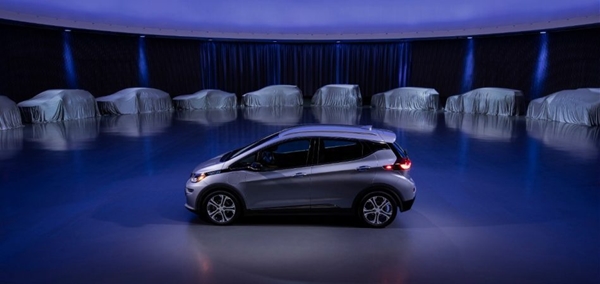More and more it seems automakers are willing to admit what some in government, media and the general public view with skepticism; that the future of personal automotive transportation will be built around electric and not internal combustion propulsion.
Earlier this year, Volvo announced that as of the 2019 model year, no new model launch will include a gas-only powertrain option. All Volvo’s designed from 2019 onward will be built either as a full battery-electric, plug-in hybrid, or traditional hybrid only.
Today in Detroit, General Motors took their turn.
They announced how it is executing on a major element of its vision of a world with zero crashes, zero emissions and zero congestion, recently announced by GM Chairman and CEO Mary Barra.
“General Motors believes in an all-electric future,” said Mark Reuss, General Motors executive vice president of Product Development, Purchasing and Supply Chain. “Although that future won’t happen overnight, GM is committed to driving increased usage and acceptance of electric vehicles through no-compromise solutions that meet our customers’ needs.”
In the next 18 months, GM will introduce two new all-electric vehicles based off learnings from the Chevrolet Bolt EV. They will be the first of at least 20 new all-electric vehicles that will launch by 2023.
Given customers’ various needs, getting to a zero emissions future will require more than just battery electric technology. It will require a two-pronged approach to electrification — battery electric and hydrogen fuel cell electric depending on the unique requirements.
GM also introduced SURUS — the Silent Utility Rover Universal Superstructure — a fuel cell powered, four-wheel steer concept vehicle on a heavy-duty truck frame that’s driven by two electric motors. With its capability and flexible architecture, SURUS could be used as a delivery vehicle, truck or even an ambulance — all emissions free.
While some automakers like Toyota, Honda and Hyundai continue to develop and roll out hydrogen fuel cell automobiles, the significant infrastructure deficit relating to hydrogen fueling stations in North America and elsewhere in the world leave battery electric vehicles with a distinct and sizable edge. However, that deficit wouldn’t not be as significant to overcome if hydrogen fuel cells were geared more towards mass transportation needs such as trucks, trains, buses and similar.
General Motors has not indicated how long of a horizon it foresees until it no longer produces internal combustion engines, but when a North American automotive juggernaut sees the electrified writing on the wall, you know that the proverbial tipping point has now been passed.


Leave a Reply